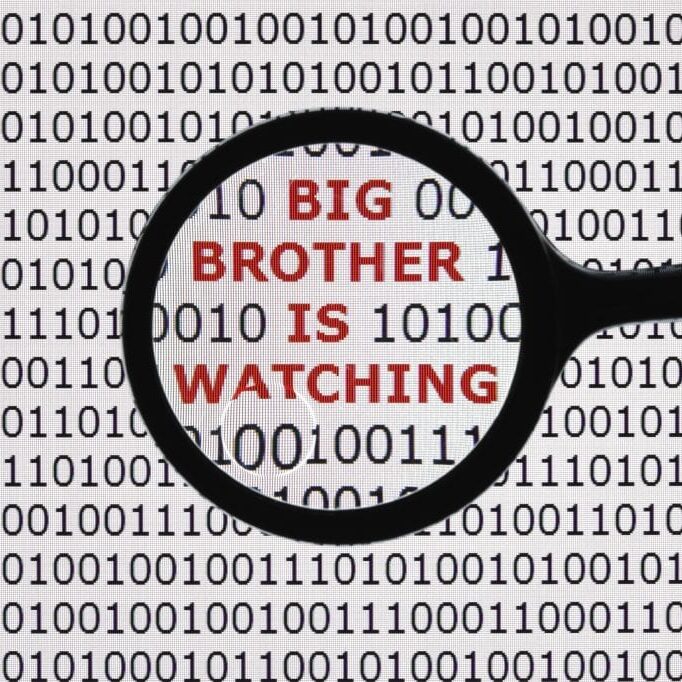Insights < BACK TO ALL INSIGHTS
Remote Search Warrants and the Continued Threat to Privacy Rights
Remote Search Warrants and the Continued Threat to Privacy Rights
By: Nicole Kardell
What were you doing Wednesday, November 5, 2014? If you are a staunch Republican, you might have been toasting the election results from the day before, dreamy-eyed and dancing. If you are a staunch Democrat, you might have been scratching your head profusely, thunderstruck and quiet. People across the country were talking politics and policy in a very public way that day. How would the results impact executive actions and legislative initiatives on immigration and healthcare? It seemed as though the democratic process was chugging along. Meanwhile, at the Thurgood Marshall Federal Judiciary Building in D.C., a little-publicized hearing with potentially far-reaching consequences to your privacy rights was taking place.
The hearing was before the Judicial Conference Advisory Committee on Criminal Rules. The topic for discussion was proposed rule changes to the Federal Rules of Criminal Procedure. The Justice Department had requested the regulatory body modify slightly Rule 41(b), which outlines the terms for obtaining a search warrant. So far so boring, right? And what does any of this have to do with you, a law-abiding citizen? No wonder that the hearing captured little attention. But the slight modification that the DoJ requested is nothing to yawn at. It is a rule change that would give federal investigators sweeping powers to access computers and electronic devices not only of their targets but also of anyone else whose online path crosses investigator initiatives. As civil liberties advocates have pointed out: the rule change could pose a serious threat to Fourth Amendment protections and privacy rights.
Last year, the DoJ requested Rule 41(b) be amended to permit courts to issue search warrants allowing remote access searches of computers and other electronic storage media when the location is concealed. The provision would further allow investigators to seize electronically stored information regardless of whether that information is stored within or outside the court’s jurisdiction. The request, especially when you consider how it would be carried out in practice, is a big leap from current procedure. As it currently stands, Rule 41(b) only allows (with limited exceptions) a court to issue a warrant for people or property within the court’s district. In order to keep a check on investigators and investigations, the rules impose this location limitation, among other limitations. The point is to not give investigators free reign to look in on whomever, wherever and whenever they choose; the point is to limit the impact their investigations could have on people’s right to privacy.
Courts and Congress have made it clear that to comply with the Fourth Amendment, a search warrant that involves surreptitious and invasive tactics must meet a number of rigorous safeguards. These safeguards were outlined in the 1960s when wiretapping and bugging developed as the investigative tools of choice. In 1967, the U.S. Supreme Court struck down New York state’s wiretapping law, holding that because electronic eavesdropping “by its very nature…involves an intrusion on privacy that is broad in scope,” it should be allowed only “under the most precise and discriminate circumstances.” Berger v. New York, 388 U.S. 41 (1967). The following year, Congress followed the Court’s cue and outlined those “precise and discriminate circumstances” in the Wiretap Act (a.k.a. Title III of the Omnibus Crime Control and Safe Streets Act of 1968). For a search warrant to be valid, the issuing judge must work through a number of questions to ensure the warrant will be sufficiently circumscribed to meet the Fourth Amendment’s particularity requirement and that it is based upon probable cause. These constraints help to ensure, among other things, that investigators don’t go on fishing expeditions in pursuit of a crime as well as a criminal or that investigators don’t otherwise misuse their ability to peer into the lives of individuals (say to badger someone with a different political affiliation).
Remote access searches of electronic devices are no less invasive than the forms of electronic eavesdropping envisaged in the Wiretap Act. As the Supreme Court recently pronounced in Riley v. California, the search of a modern electronic device such as a smartphone or computer is more intrusive to privacy than even “the most exhaustive search of a house.” 134 S. Ct. 2473, 2491 (2014). The proposed change to Rule 41 could short circuit the procedural safeguards in place and demand we carry out a fiction that somehow remote access searches are not a form of electronic eavesdropping demanding heightened standards (this would be a particularly challenging fiction if you consider that remote access searching could allow investigators to activate a device’s camera or microphone).
While the DoJ’s requested changes would not necessarily override requirements of the Wiretap Act, the Rule 41 amendments could facilitate statutory and constitutional violations. This concern, among a host of others, was well articulated by the American Civil Liberties Union in its comments on the rule change. (If you have the time, it is a worthwhile exercise to review the comments submitted by the ACLU and the Center for Democracy & Technology, among others that outlined the anticipated negative consequences of the proposed rule change.) Chief among the concerns are the risk that investigators’ techniques to gain remote access—such as hyperlinks on public pages (“watering holes”), where users with common interests tend to gather—could subject thousands of non-suspect individuals’ electronic devices to the government’s malware.
It remains to be seen what the Judicial Conference Advisory Committee will decide, whether they choose to rubberstamp the DoJ’s proposed amendments or whether they will stand down and submit the question to public and legislative debate. Considering the DoJ’s request raises significant constitutional questions, we can only hope the Committee recognizes the value of airing the matter before a more public forum where the system of checks and balances remains in place.






